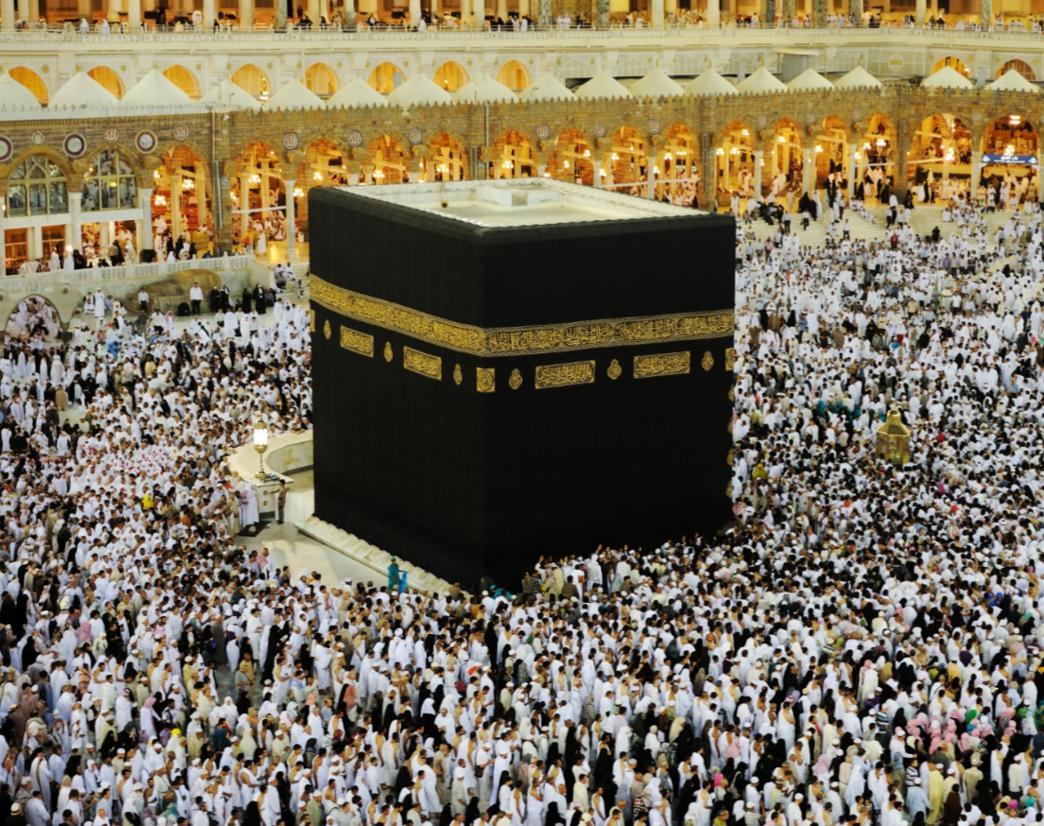True Legacy is a Mission, Not a Palace
A palace turns into ruins. A mission turns into legacy. True greatness lies not in building monuments of stone, but in building lives connected to God.

Reflections on
Surah al-Hajj (22:45–46)
How many a town We destroyed which was given to wrongdoing, so that its roofs fell down, and how many a well is deserted and how many a lofty castle is in ruins.Have these people not travelled through the land to make their hearts understand and let their ears hear; the truth is that it is not the eyes that are blind but the hearts that are in the bosoms that are blinded. (22:45–46)
Human Weakness and God’s Power
These verses of Surah al-Hajj highlight the contrast between our weakness (ijz) and the absolute power of Allah. No matter how strong or secure we may feel, we remain fragile, dependent, and entirely in need of Him. History itself testifies to this truth: palaces crumble, empires collapse, and only God’s will prevails.
Seeing with the Heart
Verse 46 connects directly with the Qur’an’s description of Ulul Albab (people of understanding) in Surah al-Baqarah. The Qur’an reminds us that eyes alone do not see—true vision comes from hearts that comprehend. A heart devoid of spiritual insight is like a walnut that appears whole from the outside but is hollow within. Only when our spiritual receptors are awakened can we draw meaning from the events and ruins around us.
The Vanity of “Bella Vistas”
The Spanish phrase “Bella Vista” means beautiful view. In our world, it often refers to grand palaces and magnificent structures. Yet, the Qur’an invites us to reflect: how many of these “Bella Vistas” have been reduced to ruins?
Even during the time of Prophet Sulaiman (AS), such grandeur existed. The Qur’an recounts how Queen Saba mistook his palace floor for water and lifted her clothes before realizing it was glass. Yet, even that wonder eventually decayed. Every palace, no matter how glorious, was destined to fall into silence and ruin.
The Exception: The Ka‘bah
The one enduring structure in human history is the Ka‘bah. Unlike other Bella Vistas, it was never built as a monument to power or beauty, but as the House of Tawheed. From its foundation by Prophet Ibrahim (AS) until today, it has remained alive, flourishing, and central to humanity’s spiritual journey. The Ka‘bah stands as a reminder of what truly endures.
Lessons from History’s Ruins
Maulana Wahiduddin Khan, in Asbaq-e-Tarikh, recalls visiting the Lal Qila (Red Fort) in Delhi. There he saw a stone inscribed: “Neele aasman ke neeche, yeh mumlikat abad rahe” (“Under the blue sky, may this kingdom always flourish”). Yet that mighty kingdom lies in ruins.
This is the story of every empire. Great Britain once ruled the seas, followed by the rise of the USA. Today even that dominance is challenged by new powers such as China and Russia. These are not only physical ruins but also abstract ruins of worldly dominance. History makes clear: no power, palace, or empire is eternal.
The Mission of Ibrahim (AS)
Prophet Ibrahim (AS) was the true father of Ulul Albab. He understood what was worth building. Instead of a palace, he laid the foundation of a mission of Tawheed—a mission that continues unbroken to this day and will remain until the Day of Judgment.
This is the ultimate lesson for us. Palaces, Bella Vistas, and empires all fade into dust. But the mission of God—the mission of truth, guidance, and service—endures forever.
✨ A palace turns into ruins. A mission turns into legacy. True greatness lies not in building monuments of stone, but in building lives connected to God.
⸻
Inspired by Maulana Wahiduddin Khan’s article in Asbaaq-e-Tareekh, published by Goodword Books


Leave a comment